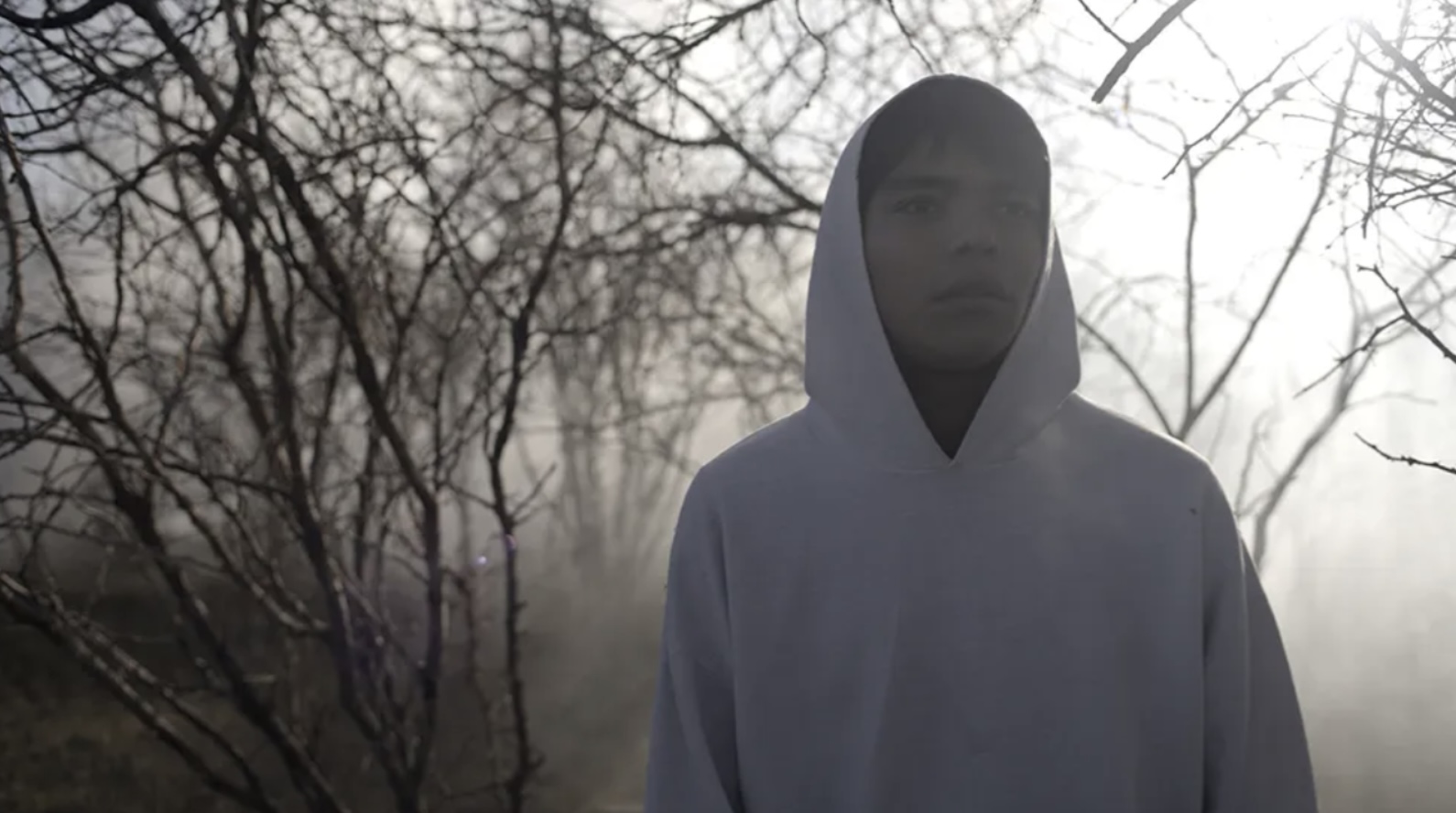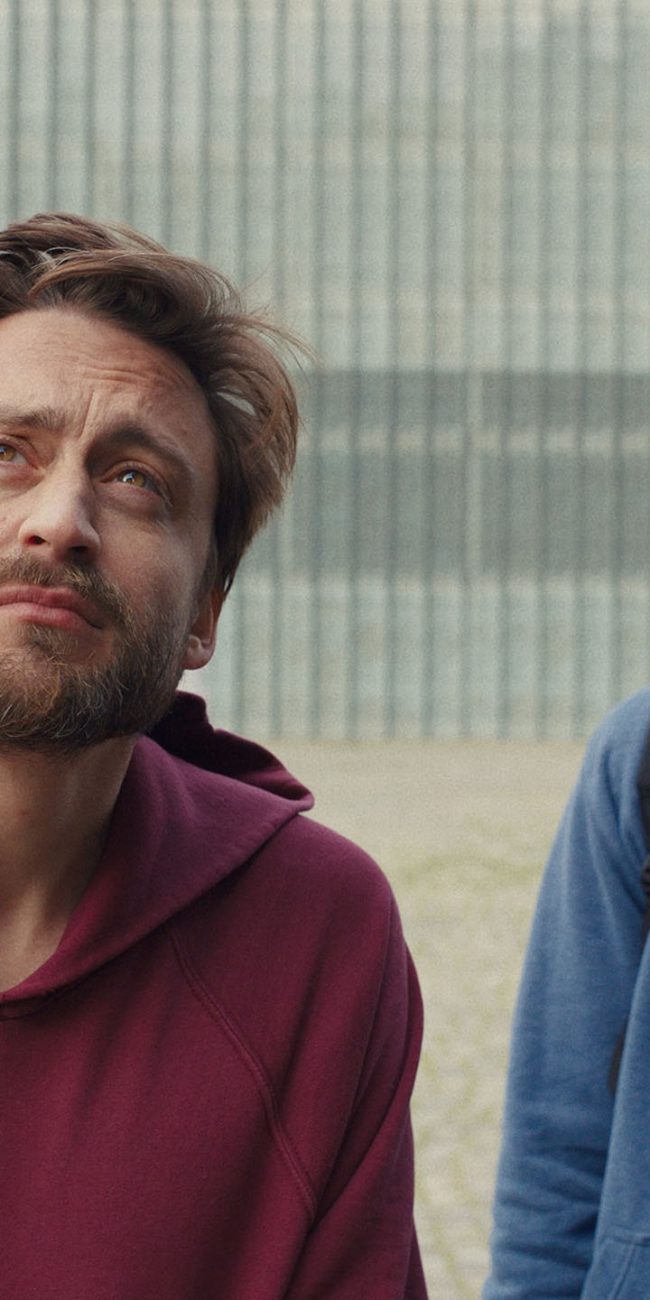SUJO

(The 2024 Sundance Film Festival runs January 18-28. Check out M.J. O’Toole’s movie review of Sujo. Seen it? Join the conversation with HtN on our Letterboxd Page.)
There is quiet tension and heartbreak in Fernanda Valdez and Astrid Rondero’s Sujo. An innocent-looking 8-year-old boy tends to a runaway horse in the foggy Mexican countryside, with its mysterious owner – a cartel leader – approaching shortly after. Right after we see the young boy’s bright smile, the atmosphere becomes more somber when we soon see the life he has ended up in from this seemingly sweet introduction. In their second collaboration, Valdez and Rondero continue to closely examine the lives of contemporary Mexicans impacted by the dangers and tragedies within their country. In their previous feature, the harrowing Identifying Features, they looked at the immigrant experience and its impact on migrant’s families. In Sujo, they portray the ongoing cartel violence and influence that looms over the lives of the impoverished town, as well as the risk of innocence being lost in that environment. But despite the film’s solemn overtones, it aptly raises the question of how one can break free from their legacy for a more promising future, especially in a world of violence. Sujo has a subtle grim quality, but it is not void of the ray of hope that lies underneath.
The young boy at the beginning grows up to be Josué (David Alejandro Rocha), who is now a sicario for the cartel. He is also a single father to a young boy, Sujo (played as a child by Kevin Uriel Aguilar Luna), for whom he tries to provide a normal enough childhood despite the surrounding crime that he contributes to. Sujo’s fierce, but loving aunt Nemesia (a terrific Yadira Perez Esteban) has disdain towards her former brother-in-law over his cold-blooded profession. This (very reasonably) causes her to worry for the small child’s safety and future under his care. Her fears soon come to light when Josué commits a transgression from within cartel networks that leads to a grisly fate. Nemesia immediately rushes to protect her nephew from blowback, soon bravely making a deal with the cartel’s leader (Ricardo Luna) to spare the child’s life. Rather than relying solely on graphic violence or shock value, Valdez and Rondero conjure dramatic tension with the use of magical realism and otherworldly images to give a sense of the brutality of this world.
As the years pass, Nemesia raises a teenage Sujo (now played by Juan Jesús Varela) in a sheltered existence for his safety, but not without providing him with a private education and an extended family in the form of her best friend Rosalia (Karla Garrido) and her two teenage sons Jeremy (Jairo Hernández Ramírez) and Jai (Alexis Jassiel Varela) who he considers his brothers. The two boys try to bring Sujo out of his shell and help him live a typical teenage life. But nothing is typical as Jeremy – a low-level cartel courier – recruits Sujo to run errands that will no doubt lead to the same grim abyss his father fell into. Nemesia knows that she can only do so much to protect her nephew at this stage in his life. But we don’t get the usual portrait of teenage rebellion here. Sujo, despite the murky waters he is getting into with his naïvete, maintains his kindness for all while slowly waking up to the reality of what he has gotten involved in. This chapter of the film provides a window into the lives of marginalized youth whose innocence can easily be exploited and taken away, perpetuating a deadly cycle. Valdez and Rondero once again succeed in highlighting the impact Mexico’s current climate has on its people, without exploiting its dire nature.
After tragedy strikes, Sujo leaves his hometown and ends up in Mexico City. On the cusp of adulthood, he works hard in a produce warehouse while keeping a low profile. But the yearning to live a normal life is still burrowed inside of him, leading him to wander through places that pique his curiosity while trying to figure out his place in the world. A door of possibilities soon opens once he catches the attention of a warm, but no-BS literature professor (Sandra Lorenzano), whom he impresses with his academic aptitude and gentleness. Could she be the one to help Sujo break free of his father’s legacy and put an end to his cycle of a life of crime? The women in his life have been without a doubt his guardians in many stages. Sujo will soon realize that the road to a new may not be that simple, especially when the past shows up at his door. Juan Jesús Varela – in his second collaboration with the directors – gives a performance that will grab you by the heart with his sensitive and layered portrayal of an outcast trying to give himself a chance in life despite what society may have written in the stars for him.
A captivating portrait of poetic vigor, the duo of Valdez and Rondero have created a David Copperfield-like tale that points out the cruel reality of young men in Mexico being forced into drug wars. However, it will not leave you hopeless. It shows that there are young people in this world who, despite their marginalized upbringing, are just as deserving of a life of promise as any other person born into better circumstances. It is also enlivened by striking imagery, thanks to eloquent lensing by cinematographer Ximena Amann. With Sujo, Fernanda Valdez and Astrid Rondero have made a visionary and remarkable sophomore feature that may launch them as new masters of Mexican cinema.
– M.J. O’Toole (@mj_otoole93)
2024 Sundance Film Festival; Fernanda Valdez, Astrid Rondero; Sujo











